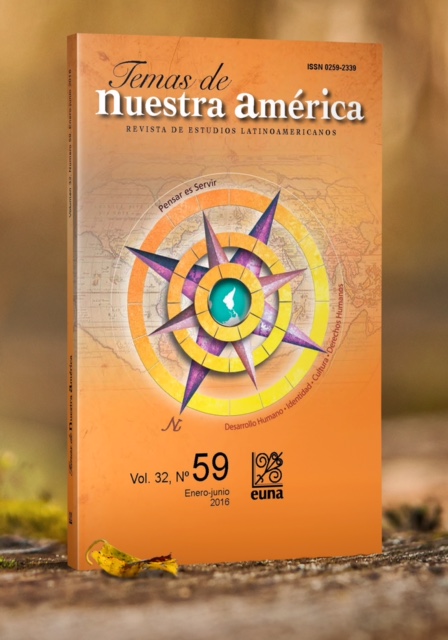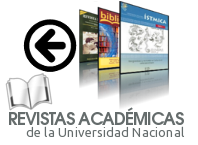Neoextractivism.... or the same old plundering?
DOI:
https://doi.org/10.15359/tdna.32-59.7Keywords:
Extractivism, plundering of natural resources, neoextractivism, criminalization, neocolonialism, post-extractivismAbstract
Based on the theories and contributions made by researchers on the topic of the extractive industry, this article attempts to answer the following questions: What is extractivism? Is it a new process of capitalist accumulation or does it have a colonial background? Are there substantial differences in government approach strategies between the left and the right? What is the outlook for the region? How do the social sciences respond to this phenomenon? Do alternatives exist to the extractive industry? We attempt to answer these questions and generate many more on the subject to better understand and contribute to a current and open discussion in our countries and around the world. Our proposal is that the possibility exists that we are not necessarily facing a new or different phenomenon, but rather one with deep historical roots and complex, current implications. Critical action and social resistance to the prevailing extractivism have given rise to a school of thought for which the term “post-extractivism” has been coined. What does it consist of and what does it propose?References
Acosta, Alberto, (2012). "Ecuador: del extractivismo al neo-extractivismo". Revista Pueblos. Consultado en http://www.revistapueblos.org/old/spip.php?article2361
Amnistía Internacional (2012) América: defensoras y defensores de derechos humanos sufren cada vez más ataques. Consultado en https://www.amnesty.org/es/press-releases/2012/12/americas-defensores-ddhh-sufren-incremento-ataques/
Arghiri, Emanuel (1969). "El intercambio desigual" Consultado en: https://www.google.com/search?tbo=p&tbm=bks&q=isbn:9978222537
Corte Interamericana de Derechos Humanos (2011). "Segundo Informe sobre la Situación de las Defensoras y los Defensores de Derechos Humanos en las Américas." Consultado en https://www.oas.org/es/cidh/defensores/docs/pdf/defensores2011.pdf
Dávalos Pablo (2013). "No podemos ser mendigos sentados en un saco de oro": las falacias del discurso extractivista. Universidad Católica del Ecuador. Consultado en http://correismo.wix.com/elcorreismoaldesnudo#!pablodavalos/cwgy
Falconí Fander (2014) Capitalismo verde en http://www.telegrafo.com.ec/opinion/columnistas/item/capitalismo-verde.html
Galeano Eduardo (1971) Las venas abiertas de América Latina. Buenos Aires. Consultado en: http://www.unefa.edu.ve/CMS/administrador/vistas/archivos/las-venas-abiertas-de-america-latina.pdf
Global Witness (2014). ¿Cuántas (muertes) más? Consultado en https://www.globalwitness.org/campaigns/environmental-activists/deadly-environment/
Gudynas Eduardo (2009). Diez tesis urgentes sobre el nuevo extractivismo Contextos y demandas bajo el progresismo sudamericano actual. Consultado en http://www.extractivismo.com/documentos/capitulos/GudynasExtractivismoSociedadDesarrollo09.pdf
Gudynas Eduardo (2013). "Extracciones, Extractivismos y Extrahecciones" Observatorio del Desarrollo No 18, Consultado en: http://www.extractivismo.com/documentos/GudynasApropiacionExtractivismoExtraheccionesOdeD2013.pdf
Gudynas, Edaurdo (2011). "Más allá del nuevo extractivismo: transiciones sostenibles y alternativas al desarrollo". En El desarrollo en cuestión. Reflexiones desde América Latina", F. Wanderley, ed. Oxfam y CIDES UMSA, La Paz, Bolivia
Harvey David (2004). El nuevo imperialismo: acumulación por desposesión. Consultado en
Martínez Alier Joan (2015) Sudamérica: el triunfo del post extractivismo en el 2015. Consultado en: http://www.jornada.unam.mx/2015/02/21/opinion/022a1mun
Petras, James (2007), Rulers and Ruled in the us Empire, Atlanta, Clarity Press.
Prebisch R. y Singer H. (1950-1970). Teoría de la dependencia Consultado en http://bibliotecavirtual.clacso.org.ar/ar/libros/clacso/crop/glosario/t.pdf
Ostrom, Elinor (2000). El gobierno de los bienes comunes. La evolución de las instituciones de acción colectiva, México, UNAM-CRIM-FCE, consultado en http://lanic.utexas.edu/project/etext/colson/24/24_10.pdf
Quesada Juan D. (2013) Caza al ecologista. Consultado en http://internacional.elpais.com/internacional/2013/06/09/actualidad/1370812983_965108.html
Svampa M. (2011). "Ideas"; Presentación en un seminario taller de la Fundación Rosa Luxemburgo. Ecuador.
Downloads
Published
How to Cite
Issue
Section
License
Esta obra de Revista Temas de Nuestra América está bajo una Licencia Creative Commons Atribución-NoComercial-SinDerivar 4.0 Internacional.
Cualquier permiso que trascienda dicha licencia, debe solicitarse por escrito a la persona directora de la Revista










